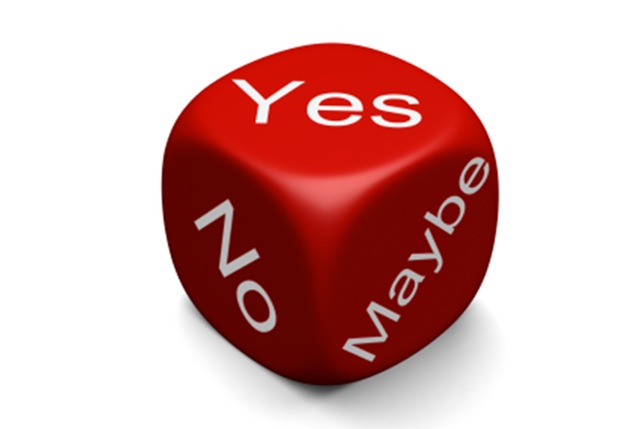 The call comes in a thousand iterations. It often looks something like this, with my quick analysis in parenthesis:
The call comes in a thousand iterations. It often looks something like this, with my quick analysis in parenthesis:
My kid was hurt on the playground. Is there anything I should do? (Parent wants to know they did everything possible for the child.)
Could my spouse’s disease have been treated earlier? (Spouse wants to know they did everything possible.)
Someone said mean things about me on the Internet that are defamatory, can you help me? (Rage, often justifiable.)
That car ran a light and almost injured me. (Almost doesn’t count.)
You know where this is going, right? Lawyers that work on contingency receive all kinds of calls; they may be from the “how much is this worth” crowd, but quite often the motivation is emotional, not financial.
The word every lawyer needs to know is this: No. Say it out loud, say it again, say it often.
Part of the reason is because taking poorly vetted cases will drive the lawyer to bankruptcy. But also important is to save the potential client from themselves. A few minutes explaining the Streisand Effect, for instance, may make perfectly clear to the potential defamation litigant why that cease and desist letter may catastrophically backfire.
When the injured person is a child, saying no isn’t particularly easy. Especially when you have your own and can truly empathize. But the ill-taken case will almost always lead to disappointment, making not only your situation worse, but theirs.
Interestingly, the most common response to the the word no is gratitude. The potential litigant simply didn’t know what was involved or how things worked or called because a friend insisted, or simply needed to know that they did all they could under the circumstances. Most people are appreciative when a clear response comes back.
I’m asked, every so often, if I could be a juror in a personal injury case. Defendants would no doubt want to boot me from the jury ASAP assuming I would be overly sympathetic and would have a tough time saying no to an injured litigant. But that would only be because they don’t know how much experience I have at turning people away.
No is the most important word. Use it and use it often.
I completely agree that saying “No” is extremely important especially when a client does not have a case. In my experience, the injured person might not be entirely satisfied and may keep trying to contact the firm in an attempt to get a positive response. Can this reflect negatively on the firm itself? How do you approach those disappointed and out to negatively impact your reputation?
How do you approach those disappointed and out to negatively impact your reputation?
I don’t understand your question. If I say no, I say no. Only a fool takes a bad case just because the potential client might be unhappy.
As to my reputation, it will be that I don’t take bad cases.
Heard this one from Tom Duffy, an excellent trial lawyer round these parts: “Turn down a good case, regret it for two hours. Take on a bad case, regret it for two years.”
“Turn down a good case, regret it for two hours. Take on a bad case, regret it for two years.”
Good one; gotta remember that.
A contracts prof i had use to say: “the best case you ever had is the one you turn down”. practice saying “no”.
Pingback: NY Judge KOs Request for Mugshots/Data by Mugshot Company – New York Personal Injury Law Blog
Not being able to say “no” in to a potential malpractice litigant is also an extremely expensive mistake. What I’ve learned is that 99% of the time people are grateful for an explanation. Many times, when we initially investigate a case, and then I have to say no, I’m usually able to provide explanations of the likely reasons why the injury/death occurred. People are always grateful for the explanation and I feel I have done them a real service. Of course, I always tell them they are free to seek alternative opinions. As for missing a case which turns out to be a winner with another attorney – all malpractice attorney’s have had that experience – and I say Mazel Tov and go on to the next one. You can’t cry over spilt milk.
If you’re a lawyer, you should be able to say no to people. If you have any slight opposition to a case, or it seems eery, just go ahead and turn it down. Like you said above, “regret it for two hours” then move on.
Turning down potential clients is the single most important key to a successful law practice, or at least that’s my 44 years of practice conclusion. But I have to add, unfortunately, the second most common feedback (after gratitude): “Do you mean to tell me that someone can ______________ to me, and there’s nothing I can do about it?” No, I’m telling you that this isn’t a case for me.
Have any of you got to the point where you can tell from the tone of voice which way its headed. I think I’m at around 85% accuracy on the first sentence and often make a bet with myself about the quality of the call. My favorite time saver after the explanation that they were in a car accident is “what is it about the crash that makes you think you will need a lawyer.” That usually susses out the truth. Is it a “i just want money for this modest injury” or someone who really needs help.